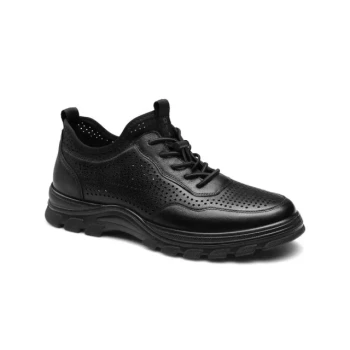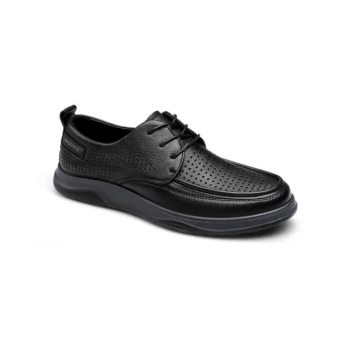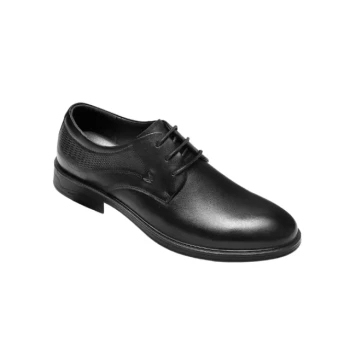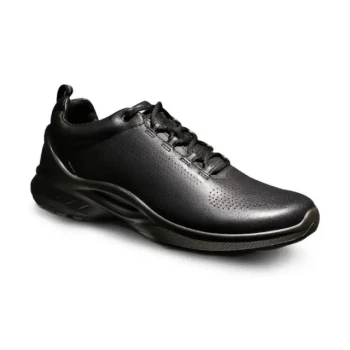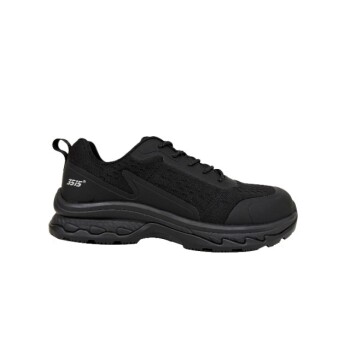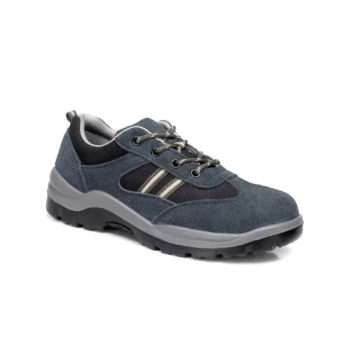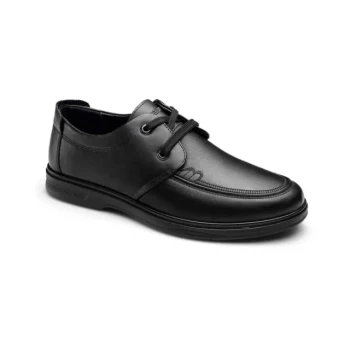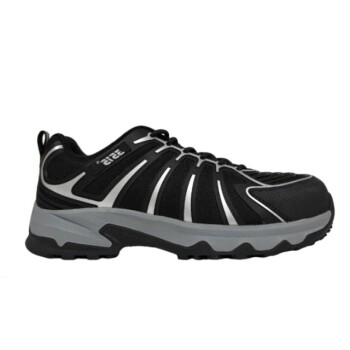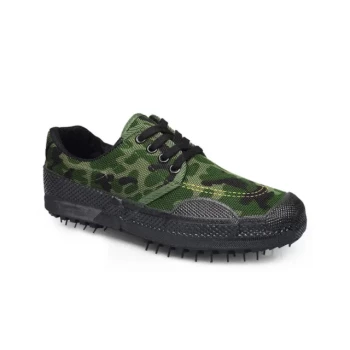To choose appropriate business casual shoes, you should avoid any style that is overtly athletic, trendy, or informal in its design. This specifically includes running sneakers, shoes with flashy hardware or graphics, and dated trends like aggressive square toes. The goal is to select footwear that maintains a polished and professional appearance.
The most common mistake is choosing a shoe that leans too far into "casual" at the expense of "business." Appropriate business casual footwear respects professional context through classic design, quality materials, and a clean appearance, even when prioritizing comfort.
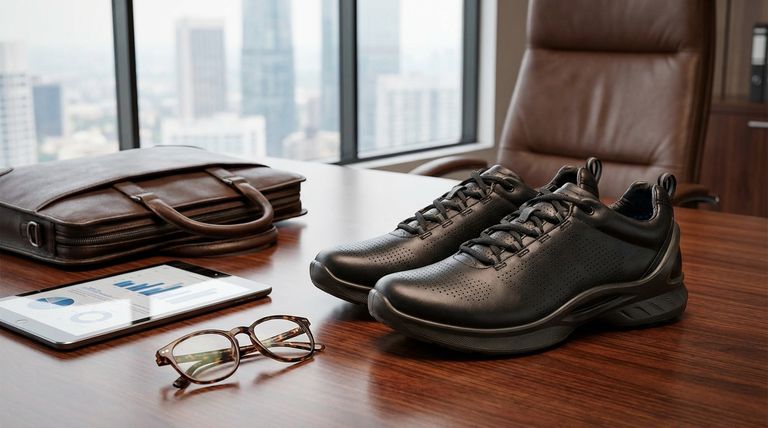
The Core Principle: Avoiding the "Too Casual" Trap
The term "business casual" itself suggests a balance. The most significant errors occur when this balance is ignored, and the shoe's design is indistinguishable from weekend or athletic wear.
The Problem with Trendy Designs
Short-lived fads and trends are the quickest way to look unprofessional. They often lack the timeless design that signals stability and good judgment.
Elements like garish metalwork, unconventional colors, or busy graphics detract from a polished look and can appear distracting or unprofessional.
The Pitfall of Dated Styles
The most notorious example is the square-toed dress shoe. This style is widely considered dated and detracts from a modern, professional silhouette. Sticking to classic, rounded-toe shapes is always the safer and more stylish choice.
Material Matters More Than You Think
Avoid shoes made from cheap, synthetic materials that crack or peel easily. Poor quality is immediately noticeable and can undermine an otherwise well-put-together outfit.
Well-made shoes from quality materials like full-grain leather or genuine suede project an image of care and attention to detail.
Common Pitfalls in Shoe Construction
Beyond general style, specific construction details can render a shoe inappropriate for a business casual setting. Understanding these nuances is key to making the right choice.
The Formality of the Sole
The sole of a shoe significantly impacts its formality. Thick, chunky, or athletic-style rubber soles are distinctly casual and should be avoided in most business settings.
While some rubber soles are acceptable for comfort, they should be discreet. A traditional flat leather sole is always the most formal and professional option.
Distinguishing 'Casual' from 'Athletic'
This is a critical distinction. While a minimalist, clean sneaker made of high-quality leather or suede can be acceptable in many modern offices, a true athletic shoe is not.
Running shoes, basketball sneakers, or any footwear designed for performance sports lack the structure and refinement needed for a professional environment.
When 'Comfort' Looks Careless
Prioritizing comfort is important, but not at the expense of appearance. Shoes that are visibly scuffed, dirty, or worn-out signal a lack of attention to detail. Similarly, overtly orthopedic-looking shoes can detract from your professional image.
Making the Right Choice for Your Workplace
Your final choice should be guided by your specific office environment and professional goals.
- If your primary focus is a traditional, more formal office: Stick to classic leather options like bluchers, loafers, or monk strap shoes, preferably with leather soles.
- If your primary focus is a modern, relaxed office: You have the flexibility to incorporate high-quality minimalist sneakers, chukka boots, or shoes with discreet rubber soles.
- If your primary focus is versatility for office and after-hours: A quality pair of Chelsea boots, chukka boots, or classic penny loafers in a neutral brown or black offers the best balance of style and appropriateness.
Ultimately, the right shoe communicates professionalism and attention to detail, reinforcing your credibility from the ground up.
Summary Table:
| Pitfall to Avoid | Why It's a Problem | Better Alternative |
|---|---|---|
| Overtly Athletic Shoes (e.g., running sneakers) | Looks too casual, unprofessional for an office. | Clean, minimalist leather sneakers or classic loafers. |
| Trendy Designs & Flashy Hardware | Appears distracting and lacks timeless professionalism. | Classic, understated styles in neutral colors. |
| Dated Styles (e.g., aggressive square toes) | Makes your overall look appear outdated. | Modern, rounded or almond-toe shapes. |
| Cheap, Synthetic Materials | Cracks and peels easily, undermining a polished appearance. | Quality full-grain leather or suede for durability. |
| Thick, Chunky Rubber Soles | Too casual; detracts from a professional silhouette. | Discreet rubber soles or traditional leather soles. |
Looking for reliable, high-quality business casual footwear for your brand or store?
As a large-scale manufacturer, 3515 produces a comprehensive range of footwear for distributors, brand owners, and bulk clients. We combine timeless designs with durable materials to create shoes that project professionalism and comfort. Our production capabilities encompass all types of shoes and boots, ensuring you get the perfect styles for your market.
Contact our team today to discuss your manufacturing needs and elevate your footwear collection.
Visual Guide
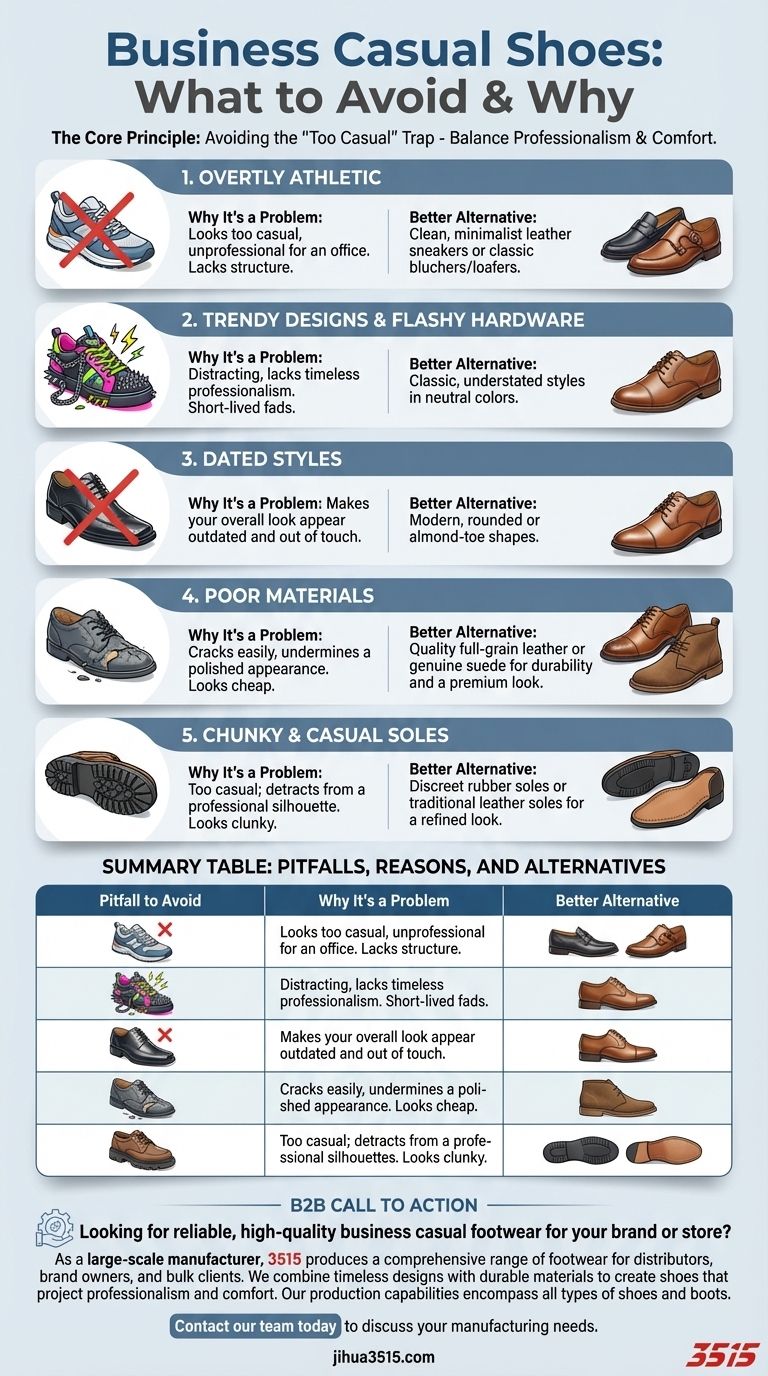
Related Products
- Wholesale Comfortable Business Casual Shoes Custom Manufacturing
- Wholesale Leather Business Casual Shoes with Dial Closure - Manufacturer of Comfort Dress Sneakers
- Factory Direct Wholesale Leather Comfort Shoes with Dial Closure
- Custom Manufactured Air Cushion Leather Business Shoes for Wholesale
- Dial Closure Leather Business Casual Shoes for Wholesale & Private Label
People Also Ask
- What are loafers, and how are they used in casual wear? Elevate Your Style with Effortless Sophistication
- What are the key factors to consider when choosing materials for casual shoes? Find Your Perfect Fit
- What is the primary purpose of fashion boots? A Style Statement Over Function
- What factors should men consider when choosing casual shoes? A Guide to Comfort, Style & Durability
- What was the Duke of Windsor's role in popularizing Chukka boots? Discover the Royal Origin of a Timeless Style
- How can desert boots be styled for an evening out? Elevate Your Smart-Casual Look
- Why is a cushioned footbed important in office work shoes? Boost All-Day Comfort & Productivity
- How are desert boots categorized in terms of style? A Guide to Smart Casual Footwear






